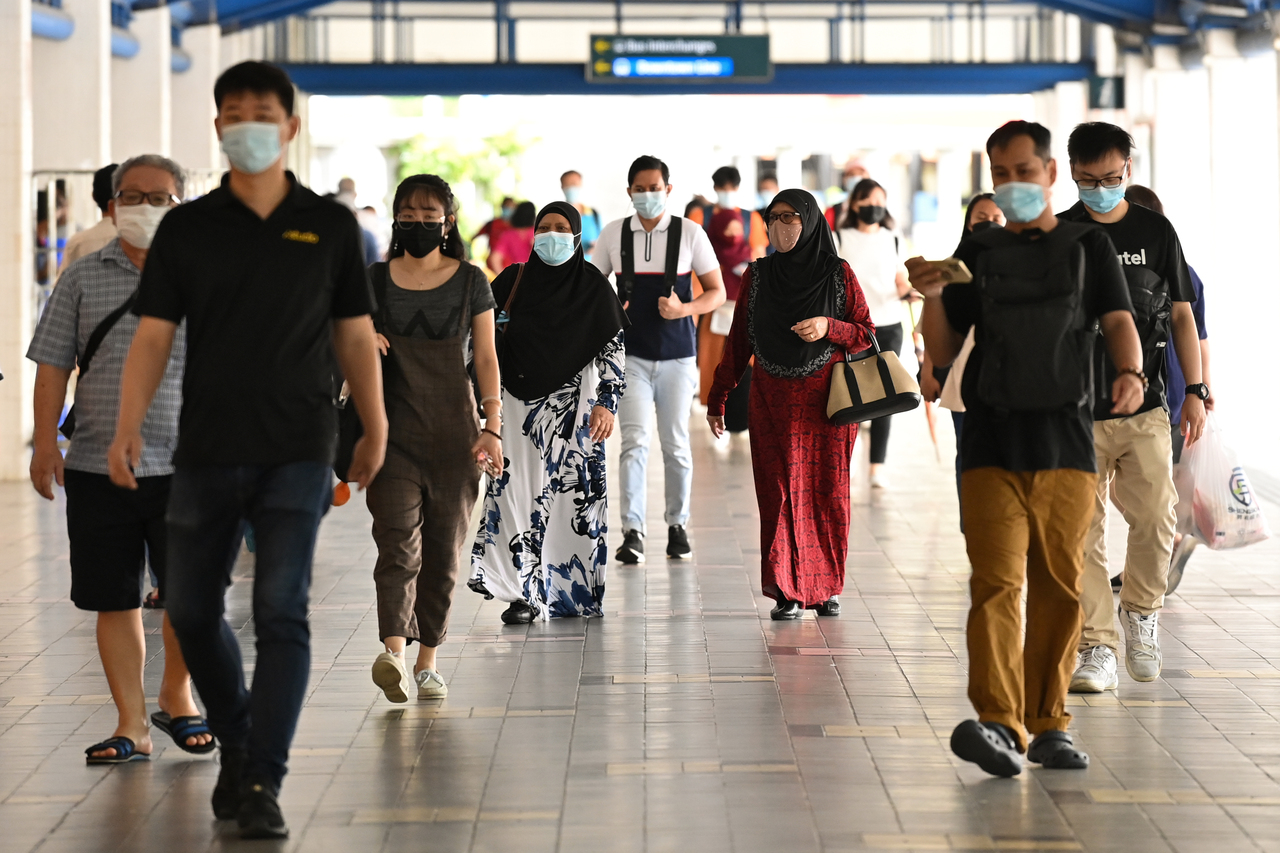Political divisions grip advanced economies, S'pore among least divided: Pew survey
Sign up now: Get ST's newsletters delivered to your inbox

Singapore was found to be one of the least divided societies in the survey, whether in terms of racial, religious or political conflict.
ST PHOTO: LIM YAOHUI
Follow topic:
WASHINGTON - The United States is deeply conflicted along political and racial lines, while Singapore stands out as one of the least divided societies despite its ethnic and religious diversity, in a survey on global attitudes published on Wednesday (Oct 13).
The Pew Research Centre's Spring 2021 Global Attitudes Survey found that political divisions were viewed as one of the largest sources of conflict within societies across 17 advanced economies, even more than tensions between those of different races or religions.
In several countries like the United States and France, this acrimony is so strong that most people think their fellow citizens disagree on basic facts, rather than just on policies.
Almost 19,000 people across the Asia Pacific, Europe and North America were polled for the fresh data on attitudes on social unity by the Pew Research Centre, a Washington-based non-partisan think-tank specialising in polls. This year was the first time Singaporeans were included in the regular survey.
Americans and South Koreans believed political tensions were worse, compared with respondents in other places, the survey found.
Nine in 10 people in the US and South Korea said there were very strong or strong conflicts between those who back different political parties, compared with an overall median of five in 10 people across all places in the survey.
Americans also believed they were much more racially divided than any other place in the survey. Some 71 per cent of Americans said that there were very strong or strong conflicts between people with different ethnic backgrounds, compared with the overall median of 48 per cent.
This view in the US was split along partisan and racial lines, with more black adults than white adults perceiving this racial fault-line. Democrats were also much more likely to see ethnic conflicts, although both Democrats and Republicans saw eye to eye when it came to the strength of partisan divisions.
Furthermore, a majority of Americans - 59 per cent - said that people could not agree on basic facts, coming in second only to France, where 61 per cent felt the same.
"When it comes to perceived political and ethnic conflicts, no public is more divided than Americans," said the Pew report that accompanied the survey findings.
Political divisions were, by and large, less significant in Asia, with the exception of Taiwan, where 69 per cent saw strong political conflicts.
Singapore was found to be one of the least divided societies in the survey, whether in terms of racial, religious or political conflict.
About 25 per cent of Singaporeans perceived strong or very strong conflicts between different races, while 21 per cent believed there were conflicts between people who practised different religions.
These views, however, varied based on the respondent's ethnicity, with ethnic Indians and Malays more likely to see political, ethnic and religious conflicts than ethnic Chinese.
"Singapore also stands out for seeing the fewest divisions between people who support different political parties," said the report, noting that 33 per cent of Singaporeans perceived such divisions - the lowest percentage across all the locations surveyed.
Globally, more people approved of diversity, although most - particularly those who were younger - also said that racial or ethnic discrimination was a problem in their society, the survey found.
Japanese and Greeks were more than likely to hold a negative view about diversity, but the numbers who did so have been declining in both countries over the years, said Pew.
In Japan, 39 per cent of respondents this year approved of having people of many different backgrounds in their country, up from 24 per cent in 2017. In Greece, 45 per cent held that view this year, up from 21 per cent in 2017.

